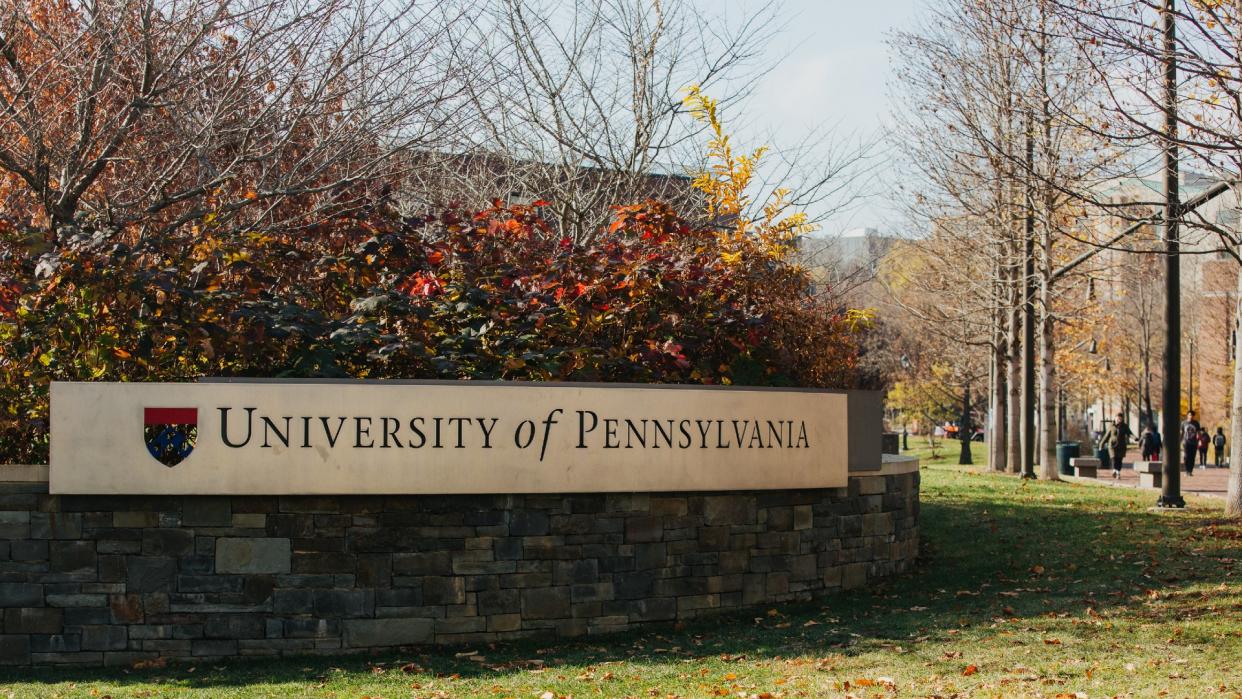How the power of universities' biggest donors shifts tides

The president of the University of Pennsylvania, Liz Magill, resigned last weekend amid a slew of criticism over her responses during a congressional hearing about antisemitism on college campuses. Significant anger was also lobbied at the inaction of Harvard University's president, Claudine Gay, who joined Magill during the hearing.
Backlash over her congressional testimony may have been the crux for Magill's resignation, but there was another major element at play: Wealthy donors, alumni and benefactors seemingly played a large role in ousting Magill by pulling their dollars from Penn. This was led by "a largely Jewish group of prominent alumni who felt the school wasn’t adequately protecting Jewish students" in the aftermath of the Israel-Hamas war, The Wall Street Journal reported. These donors threatened to "withhold millions of dollars if the leadership stayed in place" — a strategy that ended up working.
From Penn to Harvard and colleges in between, big-money donors are playing major roles in the happenings at the highest levels of university leadership. But are these changes solely a result of these donors or are there other factors at play?
Donor finances 'dictate the debate'
Having donors withdraw money "isn't an idle threat," Aimee Picchi wrote for CBS News. These universities rely on donors to boost their extensive finances — Harvard's $50 billion endowment is larger than the GDPs of more than 120 countries. As a result, "moneyed donors to elite U.S. schools have sought to use their financial clout to dictate the debate on university campuses," Picchi added.
Magill, for example, stepped down days after one wealthy benefactor, Ross Stevens, threatened to pull a $100 million donation to Penn over the school's antisemitism response. Other investors, such as Harvard alumni Bill Ackerman, cast himself "as a protector of Jewish students and the standard-bearer for people who believe colleges have fostered a hostile atmosphere for critics of liberal orthodoxy," Maureen Farrell and Rob Copeland wrote for The New York Times.
Given the endowment of these institutions, having donors pull funding "won't inflict significant financial damage on wealthy Ivy League institutions ... in the short term, but it could hurt these schools in the long run," Nathaniel Meyersohn wrote for CNN. Having wealthy donors back away could eventually "convince smaller donors to end their contributions, hurt alumni relations, impact college admissions and put pressure on the president or members of the board of trustees," Sara Harberson, the founder of college counseling group Application Nation, told CNN.
While Harvard's board has said President Gay will remain in her position, donors such as Ackerman "succeeded in shaping the debate about antisemitism at universities," Farrell and Copeland wrote, while "showcasing questions about the power of major donors to dictate the direction of elite institutions." And in the case of the current fight over the allowance of campus antisemitism, these donors are treating the debate "as a historic moment in which the moral confusion of America's elite universities was laid bare," Joshua Chaffin wrote for the Financial Times.
A danger to university autonomy
The Ivy League presidents "should have been clearer that their institutions do not tolerate calls for genocide. Period," Robert Reich opined for The Guardian. But having donors use their financial influence "force or seek the ouster of these presidents is almost as repugnant as the failures of these presidents to unambiguously condemn calls for genocide," Reich said, adding that it "endangers the autonomy of America's universities."
The job of modern university presidents "is to solicit money, and their largest targets are typically denizens of Wall Street," Reich said. But "not until now have major donors so brazenly used their financial influence to hound presidents out of office."
This comes as "left-leaning universities and some of their more conservative donors have been on a collision course for years," the Journal reported. Some wealthy benefactors, particularly those on the right, have "expressed unease at what some call the appeasement of radicalism inside an academic echo chamber with little connection to the outside world," the outlet added.
All of this backlash "has become a serious PR headache for the schools. Which is exactly the point," Allison Morrow wrote for CNN. It is a reflection of "the way colleges have to run themselves much like a corporation," Morrow said, adding that donors' opinions about on-campus matters allow them to "act like shareholders, wielding their money as a cudgel."

